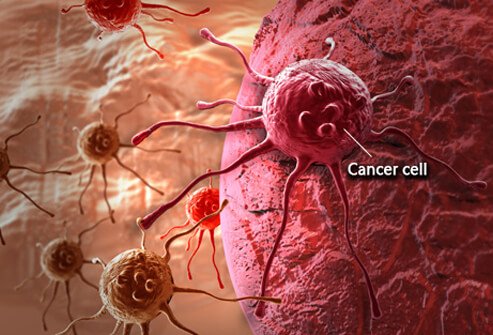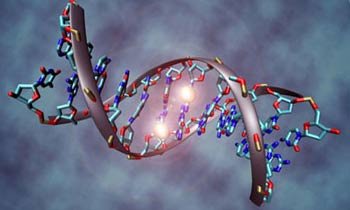Cancer is unfortunately very common and it rarely ends well. We all know it exists and we accept that it has a high chance of taking lives. In the UK where I am from, 1 in 2 people will get cancer in their lifetime and a lot of these people will die from it; but how does cancer itself kill?

What is Cancer?
Cancer is generally when the body’s cells begin to grow and reproduce uncontrollably due to mutation in the DNA. A mutation is a mistake made when your DNA is replicating itself thus changing the sequence and instructions that cell gives to its organelles (cell components). Eventually, this dividing clump of cells becomes a tumour.
A cancerous tumour is called a carcinoma.
A non-cancerous tumour is called a benign tumour.
But how can a reproducing clump of cells kill someone?
We need to define some terms.
- Angiogenesis: When the cancer grows big enough or invades a space in the body, it can trigger a process called angiogenesis which is the growth of new blood vessels in the tumour so that blood can supply it with nutrients it needs to grow.
- Necrosis: Eventually the tumour outgrows its blood supply and areas of “necrosis” appear where the blood supply is not enough and these necrotic cells are basically dead cells. Necrotic dense areas appear different visually to healthy growing cancerous cells.
When a tumour gets big enough it can cause pain. Pain develops when the tumour presses on nerves or blocks passageways in an organ leading to pressure. Pain also occurs when surrounding tissues or organs start to die; but why do they start to die?

How does Cancer kill?
Cancer can kill in many ways. When angiogenesis occurs and the blood vessel network formed in the tumour is large, it can take away nutrients from the blood to feed the cancer which would otherwise be used to feed healthy tissue. This leads to rapid weight loss and severe malnutrition which can kill.
Secondly when a cancer grows big enough, it can begin to press on blood vessels or passageways in an organ. If it presses on a vital blood vessel enough it can cut off blood flow and kill the individual. Alternatively, the blockage in a specific organ could block an important process, for example in the liver. If a blockage occurs in the liver it could be very serious and even lethal.
If a cancer develops in the skin, it can spread eventually through blood, or lymph vessels and end up forming a tumour in a vital part of the body. Then the above can occur as a secondary process and eventually lead to death.
If you have any questions, leave them in the comment section below!
Until next time, take care.
~ Mystifact
I've read that coffee and that mushrooms, mainly shittake has a compound in it that kills cancer.
Downvoting a post can decrease pending rewards and make it less visible. Common reasons:
Submit
When Cancer develops enough it will need surgery or higher forms of treatment. I do wish it was as easy as eating a whole jar of coffee beans to destroy it hahaha
Downvoting a post can decrease pending rewards and make it less visible. Common reasons:
Submit
True. Here's the study that I was referring to: https://www.theguardian.com/science/2017/may/25/drinking-coffee-may-help-prevent-liver-cancer-study-suggests
I don't think anyone would assume that eating coffee beans would cure cancer. lol
Downvoting a post can decrease pending rewards and make it less visible. Common reasons:
Submit
Cancer is a complex disease characterized by uncontrolled growth and spread of abnormal cells in the body. It can occur in any part of the body and can be caused by a variety of factors including genetics, lifestyle choices, and environmental factors. The way cancer kills varies depending on the type and stage of cancer, but it can include damage to vital organs, interference with normal bodily functions, and complications from treatments.
https://www.fenbendazole.org/fenbendazole-information/ , an anthelmintic drug commonly used to treat parasitic infections in animals, has gained attention in recent years as a potential treatment for cancer. Some suppliers claim that fenbendazole can selectively target cancer cells, inhibiting their growth and causing them to die.
Downvoting a post can decrease pending rewards and make it less visible. Common reasons:
Submit